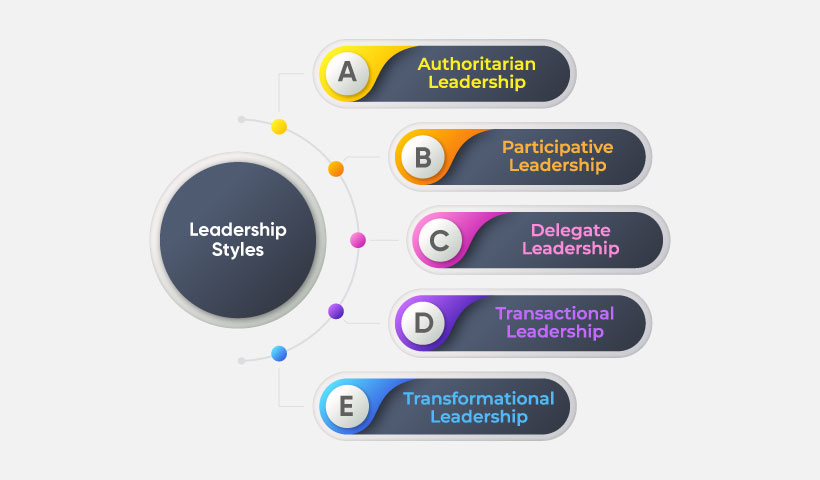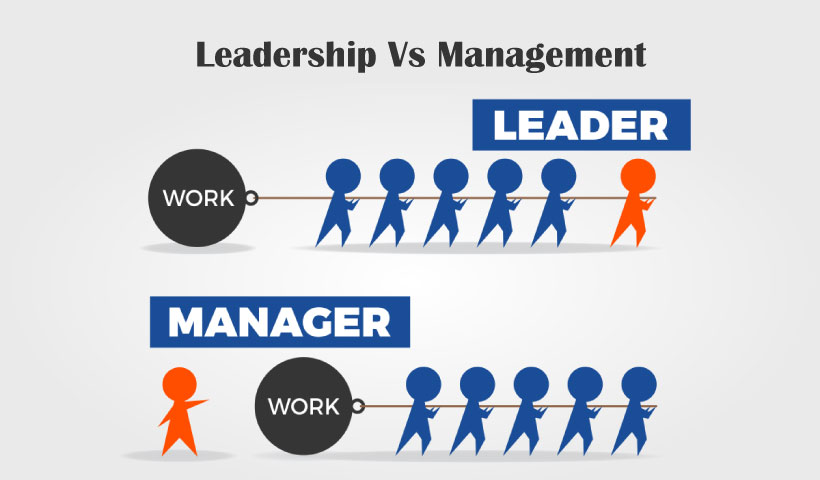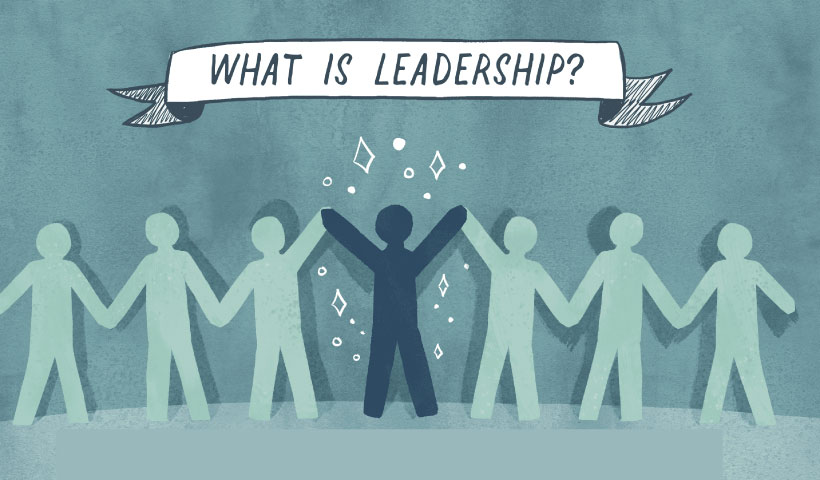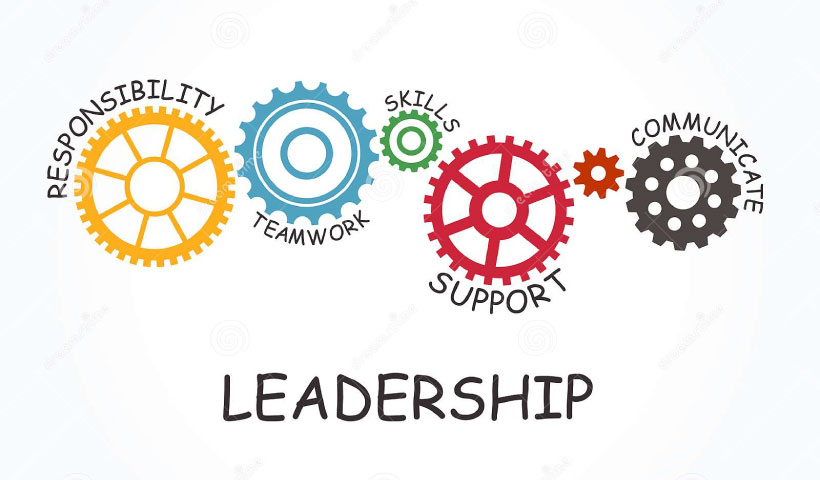In effect, the definition of leadership carries a broad meaning. Oftentimes, it works like magic. In other words, you may define it as the art of inspiring a certain team or group of people. Thus, those people become brisk and earnest in accomplishing a common objective. That is why; having leadership skills is a great trait for a manager.
If we observe it from the business point of view, then we will experience the real impact of leadership skills. You know what; a capable leader can influence and direct the workers effectively in a business. Here, we will enlighten you about leadership in detail.
Definition of Leadership
Now, it is time to be clear about the exact definition of leadership. You know what; the true meaning of leadership is the dexterity of influencing others to put their maximum efforts. Actually, it motivates them to complete a job accurately. Most importantly, it can be applied to any area such as research work, business regime, or war.
However, you may view it as a positive approach. In fact, it can assist the business organization in setting and achieving their business goals. Besides, it boosts the power of taking quick and fruitful actions whenever required. Above all, this knack brings out the best performance from the front-line workers perfectly.
Concept of Leadership
In other words, it is a vibrant process. Here, it deserves and seeks depth studies. You know what; this process usually creates a platform where the stakeholders can interact fruitfully. If you are impassioned to see yourself as a true leader, then you must contain extreme desire. Besides, strong willpower is essential in this regard.
According to some successful CEO, forecasting is a major trait of leadership. Therefore, a true leader can set the organization's goal accurately. In this continuation, he or she becomes an influent in directing his co-workers. Conversely, some people view leadership in some basic qualities such as humility, compassion, or diversity.
Importance of Leadership
In a broader sense, we must agree on the true importance of leadership. Actually, the major vitality of it is to create a vision for the organization. In fact, it includes some other crucial functions for the betterment of the business. In the following lines, we will clearly present and describe the importance of leadership. Let’s unbox the lines.
• Action:
A true leader is certain about the timeline of the work. Therefore, he initiates the action to accomplish the task on due time. In this continuation, he communicates with his co-workers and instructs them clearly. Besides, he makes them understood the organization's goal and the way of achieving it.
• Motivation:
In the second phase, motivation is a real importance of leadership. Here, it influences the woks to imply the incentive role in the organization. To do it accordingly, a leader usually persuades the employee by rewarding them financially or non-financially. Thus, he includes his subordinates in the plan of action perfectly.
• Guidance:
You know what; the leadership skill does not mean supervising only. Besides, it contains an exigent function named guidance. In fact, a leader often carries out a guiding role for his subordinates. Therefore, the works can perform workably.
• Confidence:
Naturally, confidence is the inner forcing power for a person. Without confidence, he or she cannot achieve anything. In this case, we observe that leadership plays an exigent role here. Truly, it can boost confidence among the employees. For this reason, they start believing in their own capabilities.
• Commitment:
For keeping the commitment, leadership is really exigent. Truly, it denotes the positive wiliness of the employees. Therefore, they can perform efficiently by implying their best skills. In this way, the exact timeline becomes possible for the organization to maintain.
• Job Environment:
In other words, leadership is an art that makes things done by encouraging the works. Here, the environment can boost their motivation and comfort. Similarly, a healthy relationship among the employees is a part of the positive working environment. Here, true leadership can build and maintain this type of environment.
Role of a Leader
You know what; the role of a leader in a business organization is very significant. Here, he usually owes his subordinates to ensure the growth of the business. In this process, he communicates with them and makes them clear about the company’s strategic goal. Besides, he divides the core target into several parts.
After that, he distributes the unique role among his subordinates based on those parts. Actually, every leader preserves their version of the definition of leadership. In this way, the well-planned process runs till the end. Besides, a leader plays some other exigent roles what we will discuss in the next phase. Let's have a look at the lines.
• Setting a Goal:
First of all, the prime role of a leader is to set an organizational goal. Actually, the entire activities of a business organization are run targeting this goal. In this case, a leader usually analysis the exigent data and forecasts the future trend. Thus, he establishes a feasible goal for the organization and ensures growth.
• Directing the Team:
Secondly, the leader has set the goal at the initial stage. After that, the time has come to engage the time in the process. Therefore, a true leader directs his subordinates clearly and efficiently. Besides, he shows them the right pathway to perform accurately.

• Monitoring and Controlling:
On the other hand, he is capable enough to monitor the entire activities of his employees. Likewise, he adds required corrections whenever requires. Being under full-time supervision, the employees remain vigilant in performing perfectly. Thus, a leader controls his time accurately and positively.
• Handling Obstacles:
Truly, the road to success is really thorny. You know what; it is not really easy to achieve the goal. Here, a leader has to walk a long way to make it real. In fact, he plays a crucial role in handling the obstacles efficiently.
• Rewarding and Punishing:
Being gentle all the time is not a good sign. Sometimes, a leader remains strict against policy violations. In this way, he keeps the integrity among the employees. Besides, he utilizes the rewarding tools highly. It is because; rewards can motivate the workers to perform better. So, we can find that a leader efficiently and intelligently uses these two facts.
• Coordinating:
You know what; a leader is really efficient in keeping the accurate balance between individual concern and organization goal. Therefore, he effectively coordinates different departments. In addition, he set up an interactive link among the functional parts of the organization. Thus, the company can achieve its goal.
What Makes a Great Leader?
Actually, several forces work to make a great leader. You know what; a leader usually contains some qualities which drive him. Here, these things such as honesty, empathy, vision assist him to be an influential leader. In fact, his own capabilities define the level of his leadership. Besides, several theories exist that describe a true leader.
First of all, a dream can be really persuading. Actually, a leader emerges when he starts chasing his dream. Above all, he becomes capable of forecasting the future accurately. Therefore, everything seems to be certain for him. In this way, he sets the plan and engages his subordinates to follow the plans strictly. Truly, these tools are exigent in attaining the goal.
Secondly, the toils are nothing but a staircase of success to him. For this reason, he never remains hesitant to accept the sacrifice for the development. Now, we must emphasize the communication plays a real exigent role in this matter. Above all, this dexterity assists him in implementing his plan and ensure the best performance of the employees.
Leadership Styles
Most commonly, we can identify several styles of leadership. You know what; all of those leadership styles have distinct characteristics. Besides, you may amass different advantages and disadvantages among those styles. Well, we can initiate a comparative discussion on this issue. Now, let's see what comes in the following lines.
• Authoritarian Leadership:
In this leadership style, a person imposes his personal choice and decision forcibly on others. Here, his words are the ultimate direction. Above all, he never discusses with others while making a decision.
• Participative Leadership:
You know what; this style truly follows the democratic theory. Here, a leader takes the opinion of others while making a certain plan or goal. In every stage of the working process, the leaders give value to the majority's opinion.

• Delegate Leadership:
In other words, you may name it "laissez-faire leadership." Truly, this style highly relies on the delegation of the team members. In some cases, it can be really fruitful if the members are efficient and honest. Here, the working process usually follows the command of the members of the team.
• Transactional Leadership:
Actually, this leadership style usually follows the transaction mode between the leader and the subordinates. Here, the leader rewards the good performer and punishes the worker who fails to succeed.
• Transformational Leadership:
Well, this leadership style is a motivational process. In fact, the leader does not command the workers strictly. Instead of it, he motivates the workers to bring out the best from themselves. Actually, it persuades the workers to work willingly.
Leadership VS Management
Oftentimes, you may use the terms leadership and management interchangeably. Do you know what? The true meaning of these two terms is not identical. In this section, we will set forth you a real comparison of the two facts. Thus, you can understand the subtle differences.

You know what; a leader may contain several traits which are beyond the management. Here, influencing the subordinates is essential for leadership. In the case of management, this skill is not an exigent part. Actually, having influencing power does not bother the management duties. Above all, the leadership usually gives priority to innovation.
On the other hand, management normally emphasizes rationality and governance. But, both of these two must be efficient in utilizing the resources effectively. In fact, it is the most similar trait of leadership and management. In leadership, interpersonal issues do not amass much attention. Conversely, the management has to take the interpersonal issues into account.
Conclusion
Hopefully, you have clearly understood the true definition of leadership. In fact, the entire discussion has come here to enlighten possible aspects of it. You know what; this dexterity seeks the depth of the personal attributes. Therefore, we may find a leader playing several roles simultaneously. For instance, he can be an entrepreneur, influencer, and many more at a time.










